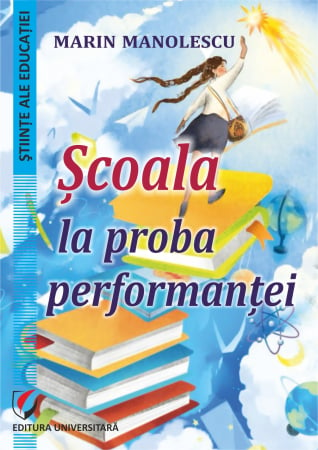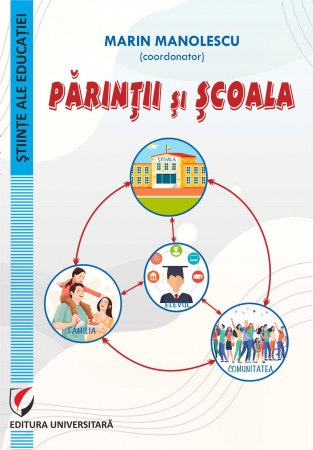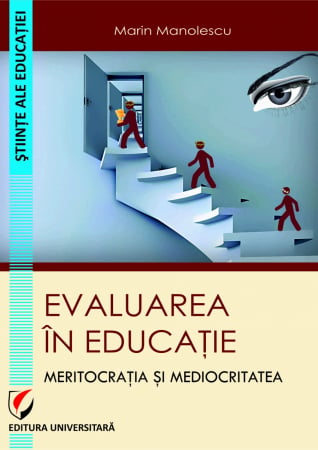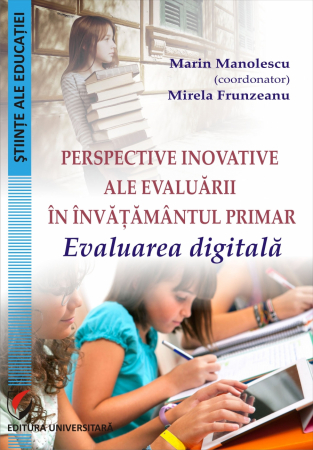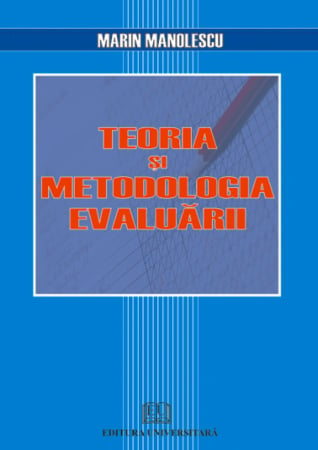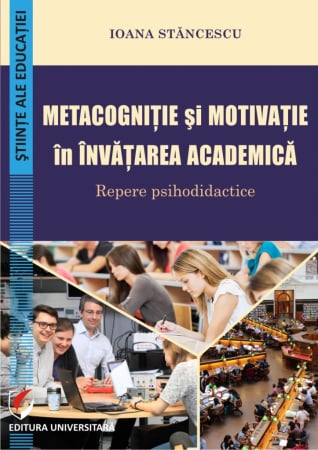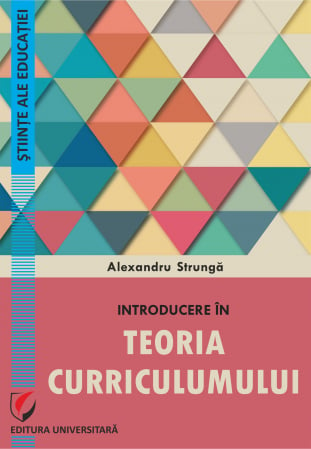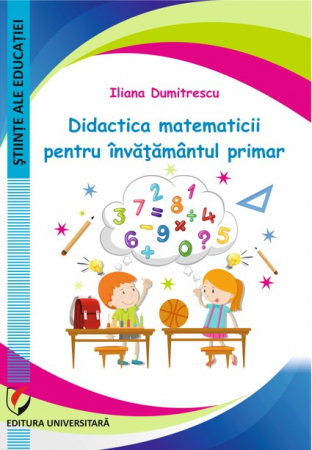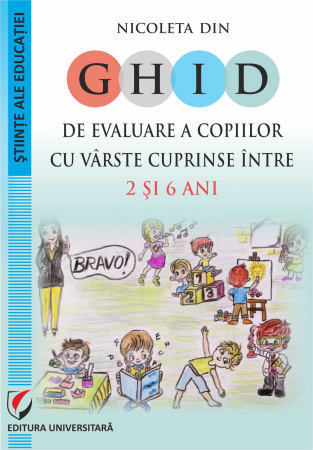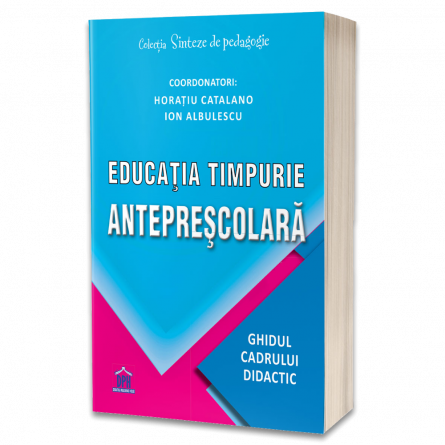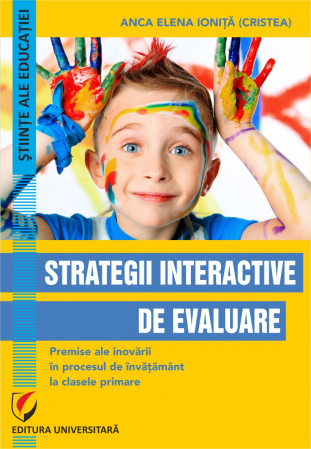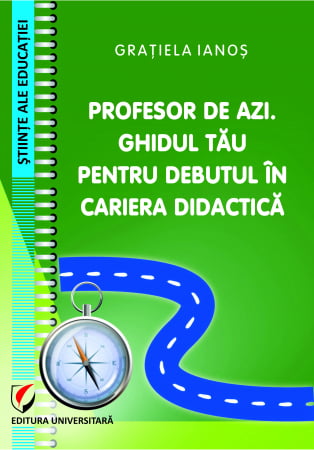Manuscript proposals: [email protected] / 0745 204 115 //// Tracking orders Individuals / Sales: 0745 200 357 / Orders Legal entities: 0721 722 783
6359.png) Training strategies for secondary school teachers in an inclusive perspective, through communities of practice
Training strategies for secondary school teachers in an inclusive perspective, through communities of practice
6359.png)
Publisher: Editura Universitară
Author: Daniela Ionescu
Edition: I
Pages: 216
Publisher year: 2024
ISBN: 978-606-28-1907-1
DOI: 10.5682/9786062819071
Product Code:
9786062819071
Do you need help?
0745 200 357
- Description
- Authors
- Content
- More details
- Reviews (0)
Communities of practice and collaborative learning play a central role in the professional development of teachers. These communities facilitate the exchange of knowledge and experiences, promoting the continuous improvement of pedagogical skills and practices. Active participation in communities of practice allows teachers to navigate together through educational challenges and contribute to the evolution of their professional identity. Collaborative learning and the development of competences are essential for maintaining relevance and effectiveness in the field of education, thus ensuring a continuous adaptation to the changing needs of students and society. The continuous training of the teaching staff in the gymnasium is revealed as a complex picture of the evolution and current needs in the field of education. It combines the history and theoretical foundations of the teaching profession with the contemporary imperatives of an adaptive pedagogy. The transition is from traditional approaches, centered on the transmission of knowledge, to modern educational models, which value competences, didactic skills and an open and reflective attitude on the part of teachers. In this context, the training of secondary school teachers becomes a dynamic process, oriented towards the development of a set of essential skills for the efficient management of the diversity and complexity of the educational needs of students in this important stage of education.
CONTENTS/5
INDEX OF TABLES/7
INDEX OF FIGURES/9
LIST OF ACRONYMS/11
PREFACE /13
SECTION I. THEORETICAL FOUNDATION /15
CHAPTER I
INITIAL AND CONTINUOUS TRAINING OF TEACHING STAFF IN HIGH SCHOOLS: SPECIFIC, POLICY AND PRACTICE/17
1. The particularities of teaching staff training for and in the teaching career/17
2. The professionalization of the teaching career - a process of developing a set of capacities and competences - the current vision regarding the community of practice/23
3. The conceptual framework of current training for secondary school teachers/39
4. Conclusions/52
CHAPTER II
THE PERSPECTIVE OF EDUCATIONAL INCLUSION AND THE DEVELOPMENT OF COMMUNITIES OF PRACTICE IN THE TRAINING OF HIGH SCHOOL TEACHERS /55
1. Inclusive education - scientific premises, relevant conceptual framework/55
2. Promoting the development of inclusive schools through continuous and internal professional training of teachers/66
3. Policies and trends at the European level in CPD in the inclusive perspective/70
4. The specifics of training in secondary education in the inclusive perspective and through CoP/73
5. Conclusions/75
CHAPTER III
MODELS OF TRAINING APPROACHED IN CONTINUOUS PROFESSIONAL DEVELOPMENT IN ROMANIA/78
1. Traditional and innovative models of continuous training in an inclusive perspective. Analysis and projections/78
2. Teachers' perceptions regarding continuous training in an inclusive perspective in Romania (studies)/89
3. Evaluation of the effectiveness of continuous training in an inclusive perspective/91
4. Conclusions/95
SECTION II. RESEARCH METHODOLOGY/97
CHAPTER IV
RESEARCH ON THE IMPROVEMENT OF TEACHER TRAINING MODELS TO ADDRESS THE PERSPECTIVE OF INCLUSION IN THE COMMUNITY OF PRACTICE/99
1. Legitimacy and research context/99
2. Research approach/102
3. The purpose and objectives of the research/103
4. The research hypotheses/103
5. Research objectives/103
6. The dependent variables of the data/105
7. Research design matrix/105
8. Research methods and tools used/106
9. Research batch/109
Study I. Investigations regarding teacher training for inclusive education/110
1. Introduction/110
2. Research methodology/112
3. Discussions/124
4. Conclusions/127
The second study. Teachers' attitude towards inclusion/127
1. Introduction/128
2. Research methodology/132
3. Analysis and interpretation of attitude data. Factorial analysis/ 139
4. Discussions/154
5. Conclusions/155
The third study. The development of inclusive education skills through CPD of teachers, analysis of the programs of continuous training institutions, of human resources, of the subject of the training programs carried out in CCD in the last five years/156
1. Introduction/157
2. Research methodology/160
3. Results/166
4. Conclusions/178
SECTION III CONCLUSION/183
1. General conclusions/185
2. Personal contributions/187
3. Future directions. Proposal of a professional development program /192
INDEX OF TABLES/7
INDEX OF FIGURES/9
LIST OF ACRONYMS/11
PREFACE /13
SECTION I. THEORETICAL FOUNDATION /15
CHAPTER I
INITIAL AND CONTINUOUS TRAINING OF TEACHING STAFF IN HIGH SCHOOLS: SPECIFIC, POLICY AND PRACTICE/17
1. The particularities of teaching staff training for and in the teaching career/17
2. The professionalization of the teaching career - a process of developing a set of capacities and competences - the current vision regarding the community of practice/23
3. The conceptual framework of current training for secondary school teachers/39
4. Conclusions/52
CHAPTER II
THE PERSPECTIVE OF EDUCATIONAL INCLUSION AND THE DEVELOPMENT OF COMMUNITIES OF PRACTICE IN THE TRAINING OF HIGH SCHOOL TEACHERS /55
1. Inclusive education - scientific premises, relevant conceptual framework/55
2. Promoting the development of inclusive schools through continuous and internal professional training of teachers/66
3. Policies and trends at the European level in CPD in the inclusive perspective/70
4. The specifics of training in secondary education in the inclusive perspective and through CoP/73
5. Conclusions/75
CHAPTER III
MODELS OF TRAINING APPROACHED IN CONTINUOUS PROFESSIONAL DEVELOPMENT IN ROMANIA/78
1. Traditional and innovative models of continuous training in an inclusive perspective. Analysis and projections/78
2. Teachers' perceptions regarding continuous training in an inclusive perspective in Romania (studies)/89
3. Evaluation of the effectiveness of continuous training in an inclusive perspective/91
4. Conclusions/95
SECTION II. RESEARCH METHODOLOGY/97
CHAPTER IV
RESEARCH ON THE IMPROVEMENT OF TEACHER TRAINING MODELS TO ADDRESS THE PERSPECTIVE OF INCLUSION IN THE COMMUNITY OF PRACTICE/99
1. Legitimacy and research context/99
2. Research approach/102
3. The purpose and objectives of the research/103
4. The research hypotheses/103
5. Research objectives/103
6. The dependent variables of the data/105
7. Research design matrix/105
8. Research methods and tools used/106
9. Research batch/109
Study I. Investigations regarding teacher training for inclusive education/110
1. Introduction/110
2. Research methodology/112
3. Discussions/124
4. Conclusions/127
The second study. Teachers' attitude towards inclusion/127
1. Introduction/128
2. Research methodology/132
3. Analysis and interpretation of attitude data. Factorial analysis/ 139
4. Discussions/154
5. Conclusions/155
The third study. The development of inclusive education skills through CPD of teachers, analysis of the programs of continuous training institutions, of human resources, of the subject of the training programs carried out in CCD in the last five years/156
1. Introduction/157
2. Research methodology/160
3. Results/166
4. Conclusions/178
SECTION III CONCLUSION/183
1. General conclusions/185
2. Personal contributions/187
3. Future directions. Proposal of a professional development program /192
In a period marked by deep transformations in the European educational landscape, the current work addresses a topical issue: the training of secondary school teachers in the spirit of inclusive education, with communities of practice as a catalyst. Under the auspices of the European Pillar of Social Rights, inclusive education is recognized as a fundamental right, contributing to building a fair and cohesive society. The work thus aligns with European strategic approaches, such as "Education and Training 2020", which prioritizes the development of the professional skills of teaching staff in order to promote school inclusion.
As student diversity becomes an omnipresent reality in classrooms, the challenge of adequately responding to the complex educational needs of all students takes on central significance. In this context, the current research makes a valuable contribution to the discussion about the role of continuous professional training in the cultivation of inclusive pedagogical practices. According to recent reports, teachers need constant support to navigate the complexity of modern education, where the emphasis falls on equity and inclusion.
The paper explores both the theoretical foundations of inclusive education, as well as the ways in which teachers can be supported in this endeavor, calling on the concept of communities of practice, inspired by the classic works of Lave and Wenger. These communities become essential spaces for continuous professional development, where teachers can reflect, learn collaboratively and share experiences. This framework of mutual learning and collective support becomes a crucial pillar in building an inclusive school, able to embrace diversity.
The structure of the work is articulated in three major sections: a broad theoretical foundation, a methodological component and a final part dedicated to conclusions and recommendations. The first section offers an introduction to the essential concepts of the initial and continuous training of teaching staff, with a special emphasis on educational policies and European best practices. The second section presents the complex methodology adopted in this research, bringing to the fore the results of the studies carried out. Finally, the last part of the paper proposes a series of conclusions and strategic recommendations aimed at improving the continuous training of teaching staff in the direction of inclusive education.
By adopting a mixed methodology, which combines quantitative and qualitative approaches, this work manages to offer an integrative perspective on contemporary challenges in the field of teacher training. The research results underline the importance of a paradigmatic change in education, oriented towards collaboration, continuous reflection and adaptation. The work thus becomes an essential landmark for decision-makers and practitioners in the educational field, offering clear directions for shaping a more equitable and inclusive education.
This paper represents the result of the research carried out as part of the doctoral thesis between October 2021 and April 2024, being the fruit of an effort supported by research, which combines scientific rigor with a deep understanding of the Romanian and European educational context in the field of training in an inclusive perspective. Some of the conclusions and results obtained during these studies have been published in specialized scientific journals, thus contributing to the substantiation and academic validation of the subject addressed.
Through its contributions, the paper not only brings clarity to the issue of educational inclusion, but also opens new perspectives for the development of teaching staff competencies. In this sense, the work is addressed both to education specialists and researchers, as well as to practitioners, offering a valuable tool for optimizing pedagogical practices and for engaging in a continuous learning process.
In conclusion, we hope that this contribution will inspire innovative initiatives in the field of inclusive education, thus supporting efforts to create a truly accessible and fair educational system for all students, regardless of their particularities.
As student diversity becomes an omnipresent reality in classrooms, the challenge of adequately responding to the complex educational needs of all students takes on central significance. In this context, the current research makes a valuable contribution to the discussion about the role of continuous professional training in the cultivation of inclusive pedagogical practices. According to recent reports, teachers need constant support to navigate the complexity of modern education, where the emphasis falls on equity and inclusion.
The paper explores both the theoretical foundations of inclusive education, as well as the ways in which teachers can be supported in this endeavor, calling on the concept of communities of practice, inspired by the classic works of Lave and Wenger. These communities become essential spaces for continuous professional development, where teachers can reflect, learn collaboratively and share experiences. This framework of mutual learning and collective support becomes a crucial pillar in building an inclusive school, able to embrace diversity.
The structure of the work is articulated in three major sections: a broad theoretical foundation, a methodological component and a final part dedicated to conclusions and recommendations. The first section offers an introduction to the essential concepts of the initial and continuous training of teaching staff, with a special emphasis on educational policies and European best practices. The second section presents the complex methodology adopted in this research, bringing to the fore the results of the studies carried out. Finally, the last part of the paper proposes a series of conclusions and strategic recommendations aimed at improving the continuous training of teaching staff in the direction of inclusive education.
By adopting a mixed methodology, which combines quantitative and qualitative approaches, this work manages to offer an integrative perspective on contemporary challenges in the field of teacher training. The research results underline the importance of a paradigmatic change in education, oriented towards collaboration, continuous reflection and adaptation. The work thus becomes an essential landmark for decision-makers and practitioners in the educational field, offering clear directions for shaping a more equitable and inclusive education.
This paper represents the result of the research carried out as part of the doctoral thesis between October 2021 and April 2024, being the fruit of an effort supported by research, which combines scientific rigor with a deep understanding of the Romanian and European educational context in the field of training in an inclusive perspective. Some of the conclusions and results obtained during these studies have been published in specialized scientific journals, thus contributing to the substantiation and academic validation of the subject addressed.
Through its contributions, the paper not only brings clarity to the issue of educational inclusion, but also opens new perspectives for the development of teaching staff competencies. In this sense, the work is addressed both to education specialists and researchers, as well as to practitioners, offering a valuable tool for optimizing pedagogical practices and for engaging in a continuous learning process.
In conclusion, we hope that this contribution will inspire innovative initiatives in the field of inclusive education, thus supporting efforts to create a truly accessible and fair educational system for all students, regardless of their particularities.
Daniela Ionescu
If you want to express your opinion about this product you can add a review.
write a review

![Training strategies for secondary school teachers in an inclusive perspective, through communities of practice [0] Training strategies for secondary school teachers in an inclusive perspective, through communities of practice [0]](https://gomagcdn.ro/domains/editurauniversitara.ro/files/product/medium/strategii-de-formare-a-cadrelor-didactice-din-gimnaziu-in-perspectiva-incluziva-prin-comunitati-de-practica-569490.jpg)
![Training strategies for secondary school teachers in an inclusive perspective, through communities of practice [1] Training strategies for secondary school teachers in an inclusive perspective, through communities of practice [1]](https://gomagcdn.ro/domains/editurauniversitara.ro/files/product/medium/strategii-de-formare-a-cadrelor-didactice-din-gimnaziu-in-perspectiva-incluziva-prin-comunitati-de-practica-224114.jpg)
![Training strategies for secondary school teachers in an inclusive perspective, through communities of practice [1] Training strategies for secondary school teachers in an inclusive perspective, through communities of practice [1]](https://gomagcdn.ro/domains/editurauniversitara.ro/files/product/large/strategii-de-formare-a-cadrelor-didactice-din-gimnaziu-in-perspectiva-incluziva-prin-comunitati-de-practica-569490.jpg)
![Training strategies for secondary school teachers in an inclusive perspective, through communities of practice [2] Training strategies for secondary school teachers in an inclusive perspective, through communities of practice [2]](https://gomagcdn.ro/domains/editurauniversitara.ro/files/product/large/strategii-de-formare-a-cadrelor-didactice-din-gimnaziu-in-perspectiva-incluziva-prin-comunitati-de-practica-224114.jpg)
